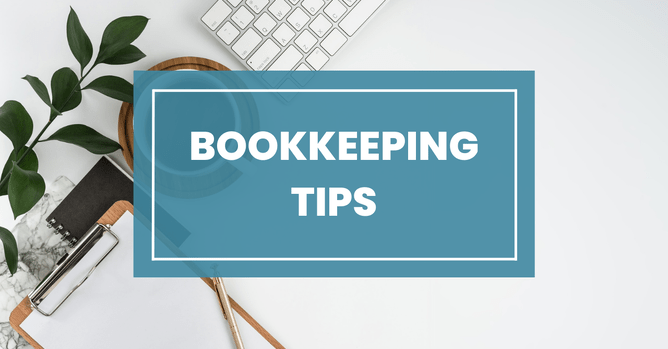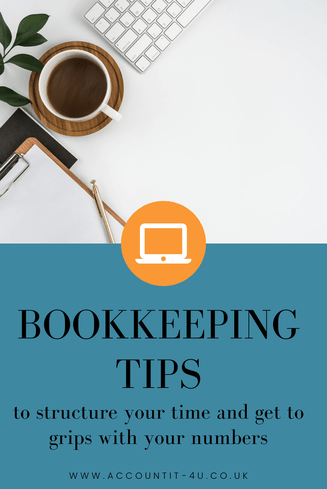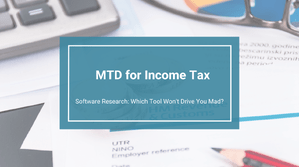Updated for 2025 - Because your freelance journey deserves financial clarity, not sleepless nights
Hey there
If you've found your way here, chances are you're feeling a bit overwhelmed by the whole bookkeeping thing. Maybe you've been putting it off, or perhaps you've tried to tackle it and felt like you were drowning in receipts and numbers that just don't seem to add up.
I get it. Really, I do.
Whether you're new to freelancing or you've been at it for a while, managing the money side of things can feel like learning a foreign language - one that everyone expects you to be fluent in overnight.
The good news? It doesn't have to be complicated, and you don't have to figure it all out alone. Let me share some gentle, practical ways to get your bookkeeping sorted without losing your sanity in the process.
A quick note: These are practical tips I've learned from helping freelancers/small biz owners over the years. They're not formal tax advice, but they might just make your life a whole lot easier.
Let's Start Small and Simple
First things first - you don't need to fix everything at once. In fact, trying to do that is usually what leads to feeling overwhelmed and giving up altogether.
Here's what I suggest: Find a quiet moment (maybe with a cup of tea?) and block out just 15 minutes in your calendar. Just 15 minutes. That's it.
Pick one small task from the tips below and focus on just that. Tomorrow, pick another. By the end of the week, you'll be surprised at how much clearer things feel.
If you're starting with months of backlog, that's okay too. It happens to the best of us. Just start where you are, with what you have.
1. Give Your Business Money Its Own Home
Here's the thing: Mixing your personal and business money is like trying to sort your laundry when everything's been thrown together in one big pile. Technically possible, but unnecessarily stressful.
If you have a Limited Company: You'll need a separate business account anyway - it's not optional, but that actually makes the decision easier.
If you're a Sole Trader: You're not legally required to have a separate account, but trust me on this one - it'll save you so many headaches.
Why this helps:
No more playing detective with your bank statements at tax time
You'll actually know how much money your business is making (or spending)
It feels more... professional, somehow. Even if you're working from your kitchen table in pyjamas
Getting started: You don't need anything fancy. Even a basic personal account that you use only for business will do the trick (nb. your bank may have rules around this so please check). The magic isn't in the type of account - it's in keeping things separate.
2. Ask for Your Money (It's Okay, Really)
This might feel uncomfortable if you're not naturally pushy (and honestly, most of us freelancers aren't). But here's the truth: asking to be paid for your work isn't pushy - it's professional.
For service-based work: Your time is your product, and you deserve to be paid for it. The sooner you invoice, the sooner you can stop worrying about whether you remembered to ask for payment.
Some approaches that work:
Invoice as soon as you finish a piece of work (while it's fresh in everyone's mind)
For ongoing work, consider invoicing at the start of the month
For bigger projects, break payments into chunks - it's easier for everyone
If you need to buy materials upfront, it's perfectly reasonable to ask for some money in advance
About payment terms: Those "30 days" everyone talks about? That's not set in stone. You can ask for payment in 14 or 7 days, or even 1!. The worst that happens is someone asks if they can have longer. You're not being difficult - you're running a business.
A gentle reminder: Money promised isn't the same as money in your account. Plan your cash flow accordingly.
3: Save for you taxes
I know, I know. Tax planning isn't exactly exciting. But here's the thing - a little bit of preparation now can save you from a lot of stress later.
The simple approach: Every time money comes into your business account, move about 20-25% into a separate savings pot or account. Think of it as money that was never really yours to begin with.
Making it easier:
Use your bank's savings pots if they have them (out of sight, out of mind)
Set up a separate savings account if you think you might be tempted to "borrow" from it
Consider setting up an automatic transfer so you don't have to remember
If you're VAT registered: That VAT you collect belongs to the government, not you. Save it immediately so you're not scrambling when the quarterly bill arrives.
A comforting thought: It's better to save a bit too much and get a nice surprise at tax time than to save too little and get an unpleasant shock.
4. Keep Track of What You Spend (It's More Important Than You Think)
Here's something that might surprise you - you could be earning good money but still struggling financially if you don't know where it's all going.
The simple equation: What you earn minus what you spend equals your actual profit. And profit is what you get to keep.
Why tracking expenses matters:
You'll know if your business is actually making money (not just bringing in money)
Many business expenses can reduce your tax bill
You'll spot patterns - maybe you're spending more than you realize on subscriptions or supplies
The practical bit:
▶️Take a photo of receipts when you get them (before they fade or get lost)
▶️Make a quick note about what it was for
▶️Keep them somewhere digital - a folder on your phone is fine (but remember to backup!)
▶️Look through them once a month to see what story they're telling
The tax benefit: Every legitimate business expense can potentially reduce what you owe in tax. That software subscription, that office chair, even that client meeting coffee - they all count.
5. Choose a System That Works for You
You need some way to keep track of everything, but it doesn't have to be complicated.
Your options:
Spreadsheets: Free and flexible, but can get messy quickly
Accounting software: More automated, often includes invoicing, and many are designed for small businesses
If you go the software route: Most modern accounting software lives in the cloud, which means you can access it from anywhere. Many have phone apps too, so you can snap photos of receipts or check your numbers while you're out.
What to look for:
Something that fits your budget
Something that makes sense to you (if it's confusing, you won't use it)
Something that can grow with your business
The three main things you need to track:
Money in and out: Like your bank statement, but organized
Who owes you money: Your unpaid invoices
Who you owe money to: Your unpaid bills
A quick reality check: The best system is the one you'll actually use. Don't get caught up in finding the "perfect" solution - start with something simple and see how you go.
When It's Okay to Ask for Help
Here's something important - you don't have to do everything yourself. You became a freelancer to do what you're good at and enjoy, not to become an accountant.
It might be time to get some help if:
You're avoiding looking at your finances
You're earning money but have no idea if you're actually profitable
The thought of tax deadlines makes you anxious
You'd rather spend your time on work that energizes you
Getting help doesn't mean you've failed: It means you're being smart about your time and energy.
Your Next Small Steps
You don't need to tackle everything at once. Pick what feels most manageable right now:
Set up that separate business account
Choose a simple system to track your money
Start putting a bit aside for tax
Begin that gentle 15-minute daily routine
Remember, this is about progress, not perfection
If You Need a Friendly Chat
Sometimes it helps just to talk things through with someone who understands the freelance journey and won't make you feel silly for asking questions.
Whether you want to check if you're on the right track, need help choosing the right approach for your situation, or you're ready to hand the whole thing over to someone who genuinely enjoys working with numbers, I'm here.
No judgment, no pressure, just friendly support.
Drop me a line at hello@janewhitman.co - I'd love to help you feel more confident about your business finances.
Because your creative work deserves to be supported by solid, stress-free finances





